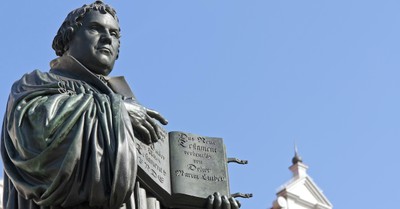Why Did Jesus' Life and Death Have to Happen the Way it Did?
The twelve remaining members of a group of seventeen North American missionaries kidnapped in Haiti two months ago were released yesterday. Five of the hostages had been let go earlier.
In other news, a man in Western Kentucky played the gospel hymn “There’s Something about That Name” on a piano amid the wreckage of his home caused by last weekend’s tornadoes. He did not know that his sister was capturing the video, which has now gone viral.
We can use such good news amidst the hard news of the day:
- Five children were killed and another four critically injured in Australia after they fell thirty-two feet from a bouncy castle lifted into the air by wind.
- A Florida-bound jet crashed in the Dominican Republic on Wednesday, killing all nine people aboard.
- Two days ago, hurricane-force thunderstorm gusts impacted at least eighty million people from the Rockies to the Great Lakes.
- A powerful typhoon forced the evacuation of tens of thousands of people in the Philippines yesterday.
- Hundreds of millions of enterprise and consumer devices are at risk from state-sponsored malware hackers.
- The US is facing a “double coronavirus surge” as omicron advances amid the ongoing delta pandemic. Understandably, according to a new survey, most Americans say they are “worn out” by COVID-19.
Why did Jesus do it this way?
Hard news always seems harder when it comes during the Christmas season. However, paradoxically, difficult times are precisely why Christmas happened the way it did.
We know that Jesus came at Christmas because “God loved us and sent his Son to be the propitiation for our sins” (1 John 4:10) so we could receive forgiveness (1 John 1:9) and eternal life (John 3:16) as the children of God (John 1:12).
So, Jesus came to earth to die for us. But why did he have to die the way he did?
Crucifixion is the most horrific, brutal form of tortured execution ever devised. Why did Jesus not die by hemlock like Socrates or a lethal injection such as is common today? “He was pierced for our transgressions; he was crushed for our iniquities” (Isaiah 53:5), which shows that you will never face greater physical pain than Jesus bore for you. He died on a cross in solidarity with your suffering and mine.
But why did Jesus not go directly to the cross? Why his three years of public ministry?
Our Lord spent this time “teaching in their synagogues and proclaiming the gospel of the kingdom and healing every disease and every affliction among the people” (Matthew 5:23). Because he healed the sick and raised the dead, we can know that he is our Great Physician today.
But why did Jesus not come to earth at the age of thirty to launch this ministry? Why come as a baby who grew as a child into a man (cf. Luke 2:52)?
“In every respect [he] has been tempted as we are, yet without sin” (Hebrews 4:15). Because Jesus experienced the full gamut of humanity, he faced every temptation we face and can empower us to achieve victory whenever we are tempted today (cf. 1 Corinthians 13:12).
But why did Jesus come, not just as a baby, but as an infant born to a peasant teenage girl in a cow stall outside an inn in an out-of-the way village?
In The Hungering Dark, Frederick Buechner wrote: “Those who believe in God can never in a way be sure of him again. Once they have seen him in a stable, they can never be sure where he will appear or to what lengths he will go or to what ludicrous depths of self-humiliation he will descend in his wild pursuit of man. If holiness and the awful power and majesty of God were present in this least auspicious of all events, this birth of a peasant’s child, then there is no place or time so lowly and earthbound but that holiness can be present there too.”
"It's more challenging to serve him when times are bad"
Christmas proves that the creator and ruler of the universe (Colossians 1:16) is aptly called “Immanuel,” a name which means “God with us” (Matthew 1:23). If you need forgiveness, you can go to your crucified Savior. If you need healing, you can go to your Great Physician. If you are facing temptation, you can go to your sinless High Priest. If your circumstances are difficult, you can go to the manger-born Child of Christmas.
However, an unbelieving world doesn’t know what we know. For them to turn to Jesus for the grace they need, they must see his grace at work in us.
Rev. Wes Fowler is the pastor of First Baptist Church in Mayfield, Kentucky. After a tornado devastated their town last Friday night, the Associated Press reports that he and his church members immediately began the work of ministry, mobilizing to “provide whatever they can to help survivors cope with the disaster’s aftermath and stay afloat—gift cards, food, generators, water, a listening ear, and more.”
The congregation quickly formed three teams: one to help affected church members, a second to work on repairing the church campus, and a third to serve the broader community and coordinate offers of aid.
Pastor Fowler said, “It’s easy to serve the Lord when things are good. It’s more challenging to serve him when times are bad, and I think that’s really when people are looking to see if our faith is genuine, if our faith is true.”
Because of Christmas, we know that the Object of our faith is genuine and true. However, we must experience his reality if we would lead others to experience his reality. As Patty Hammond noted, “Your ministry will never be bigger than your vision of Jesus.”
How big is your vision of Jesus today?
Publication date: December 17, 2021
Photo courtesy: ©Getty Images/Israel Brum
Jim Denison, PhD, is a cultural theologian and the founder and CEO of Denison Ministries. Denison Ministries includes DenisonForum.org, First15.org, ChristianParenting.org, and FoundationsWithJanet.org. Jim speaks biblically into significant cultural issues at Denison Forum. He is the chief author of The Daily Article and has written more than 30 books, including The Coming Tsunami, the Biblical Insight to Tough Questions series, and The Fifth Great Awakening.
The views expressed in this commentary do not necessarily reflect those of CrosswalkHeadlines.
For more from the Denison Forum, please visit www.denisonforum.org.
The Daily Article Podcast is Here!


















